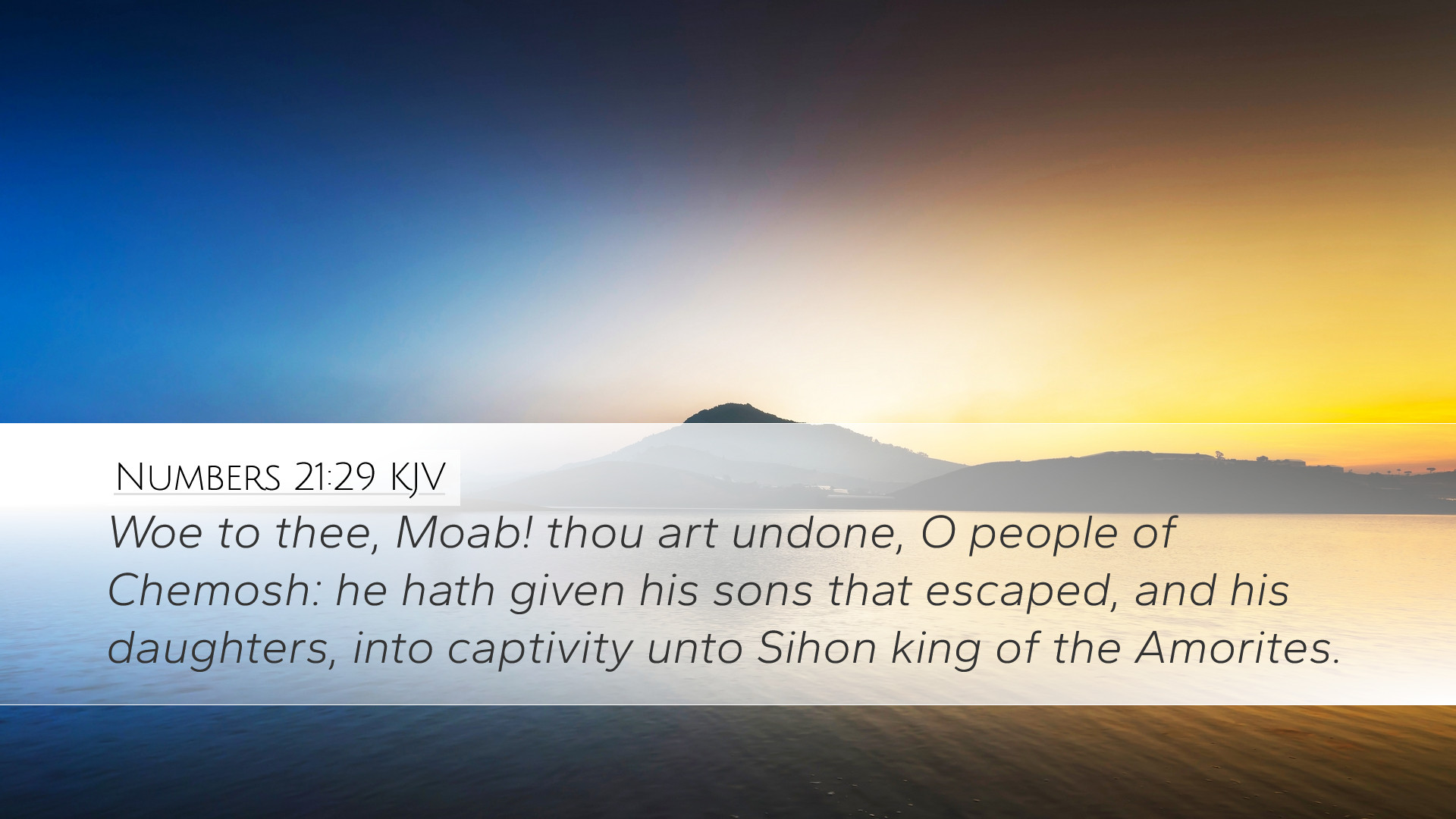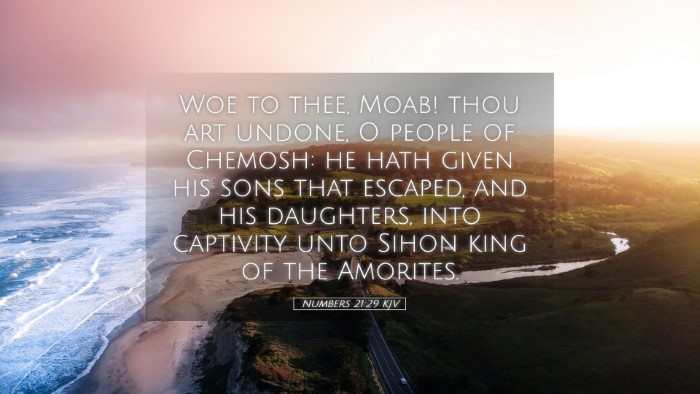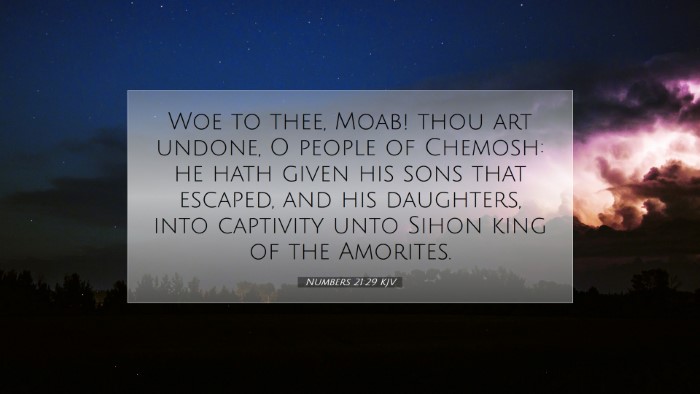Bible Commentary on Numbers 21:29
Verse Overview:
Numbers 21:29 states, "Woe to you, Moab! You are undone, O people of Chemosh! He has given his sons as fugitives, and his daughters into captivity, to Sihon king of the Amorites." This verse encapsulates a prophetic lament regarding Moab and its deity Chemosh, revealing profound theological themes of judgment and the sovereignty of God over nations.
Contextual Background
The Book of Numbers presents a narrative centered on the Israelites' journey through the wilderness toward the Promised Land. The Moabites, descendants of Lot, were frequently in conflict with Israel. This verse follows the Israelites' victory over Arad and signifies the impending judgment against Moab due to its opposition to God’s people.
Insights from Commentators
Matthew Henry's Commentary
Matthew Henry emphasizes that this verse reflects God's judgment on the enemies of Israel. He notes that the word “woe” signifies not just an announcement of destruction but also a lament for the lost state of Moab. Henry explains that Chemosh, their god, was unable to defend them, indicating the impotence of false deities in the face of the Almighty God.
- Israel's Position: Henry highlights that the Israelites stand as instruments of God’s judgment against those who oppose His will.
- Implications for Worship: The reference to Chemosh calls attention to the futility of idol worship, stressing that true idols cannot save or protect their worshippers.
Albert Barnes' Notes
Barnes provides a detailed exposition on the Moabites' position in biblical history, interpreting their downfall as a consequence of their rebellion against God. He remarks on the significance of the phrase "He has given his sons as fugitives," pointing to the complete destruction of Moab's military and populace.
- Historical Consequences: Barnes notes that this serves as a warning to all nations regarding the repercussions of opposing Israel.
- Divine Justice: He stresses the theme of divine justice, demonstrating that God uses Israel as an instrument to enact His will against nations steeped in idolatry.
Adam Clarke's Commentary
Adam Clarke expands on the significance of Chemosh, describing him as a deity associated with human sacrifices, particularly the sacrifice of children. He connects this to the nature of Moab's practices and underscores the moral implications of such idolatry. Clarke interprets the verse as a profound statement about the consequences of turning away from God toward wicked practices.
- Idolatry's Consequences: Clarke illustrates that the loss of sons and daughters into captivity signifies not only military defeat but also moral degradation and societal collapse.
- Judgment and Grace: He reminds readers that judgment can lead backward to grace and reconciliation, urging an understanding of God’s mercy even amidst judgment.
Theological Themes
The warnings presented in Numbers 21:29 resonate deeply with theological themes relevant to both ancient and contemporary readers:
- Judgment of God: This verse serves as a reminder of God’s sovereignty and the certainty of His judgment upon nations that oppose His will. It speaks to the reality that all nations will ultimately be accountable to God.
- Futility of Idols: Chemosh symbolizes the ultimate failure of false gods. The impotence of Moab's deity against the true God serves as an essential lesson on the danger of idolatry.
- Hope Amidst Judgment: In recognizing judgment, there is a call to repentance and acknowledgment of God’s sovereignty—offering a path to restoration for those willing to turn back to Him.
Application for Believers
This verse challenges believers to reflect on their own lives and the influences they allow, calling for vigilance against the subtle idolatries that can creep in, whether they be materialism, secular philosophies, or misplaced priorities. It calls for a reliance on the true God who delivers and saves.
Conclusion
In summary, Numbers 21:29 serves as a powerful reminder of God’s sovereignty over all people, the spiritual consequences of idolatry, and the assurance that, regardless of earthly powers, God's plan will prevail. The insights from public domain commentaries provide depth to the understanding of this verse, enriching the interpretations for pastors, scholars, and students of the Bible.


